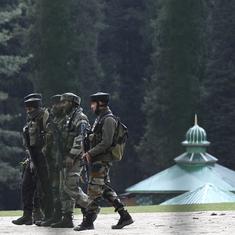These revelations were made in a study titled International Status of Education About the Holocaust, conducted by the United Nations Educational, Scientific and Cultural Organisation and the George Eckert Institute for International Textbook Research. The study aimed to compare how the Holocaust is taught in countries around the world and find out whether the dissemination of information about the Holocaust is fragmented or distorted in any way to serve political ends.
In surveying five prescribed textbooks in India, the study found that none of them makes a mention of the term “Holocaust” or its Hebrew equivalent “Shoah”. The Holocaust, which is broadly defined as the killing of millions of Jews and other minority groups by the Nazis during World War II, is only mentioned as part of several events that occurred during the war.
The five textbooks, published between 1995 and 2006, show much disparity in descriptions of the Holocaust and the treatment of the Second World War. Most of the lessons in these textbooks attempt to relate the events of the war to local happenings in India. Some refer to Mahatma Gandhi’s letters to Adolf Hitler appealing for peace while others imply comparisons between the German persecution of coloured people with colonialism in India.
Parallels with Indian struggle
The three books, published in 1995 and 2005, were under the aegis of governments in which the Left parties had a considerable say. In this context, the report said, the Holocaust itself was overshadowed by the events of the war and the anti-fascist resistance which reflects a parallel to the Indian freedom struggle.
On the other hand, one textbook published in 2002 when the BJP government was in power at the Centre totally disregarded the Holocaust. This, the study’s authors said, “may be ascribed to the fact that its authors appear to sympathise with the nationalist Bharatiya Janata Party and with its radical nationalism and the goal of territorial unity akin to that of the National Socialists [in Germany].”
However, the textbooks that do cover the events of the war and the Holocaust do so in great detail, even if they don’t use the actual word. Some go as far back as the influence of the ideas of Herbert Spencer and Charles Darwin in the 19th centrury on racial ideology. Others go into the Nuremberg trials besides the creation of museums, memoirs and films.
Oblique mentions of gassing
Similiar descriptions of the World War II and its outcomes in Chinese textbooks are described in relation to happenings in China, the report said. Chinese textbooks refer to the Holocaust as genocide and then compare it to the Japanese invasion of China in 1937. The texts treat the massacre of Chinese civilians by Japanese troops in Nanjing with more historical significance than the Holocaust.
Teaching of the Second World War in Chinese schools focuses on the political and military developments before and during the war. It deals with the “what” and “how” like the rise of Hitler and the Nazis, the growth of anti-Semitism, and the effects of German fascism. The books mention the social exclusion and humiliation of Jews, as well as the concentration camps, medical experimentation and gassing but in an oblique way. The only event covered in some detail is when Jewish refugees arrived in Shanghai in 1938.
Textbooks in Pakistan, Sri Lanka and Bhutan all make only oblique references to the Holocaust, with the attention on this period in world history falling on the events of the war. Schoolbooks in Nepal completely ignore the Holocaust.










